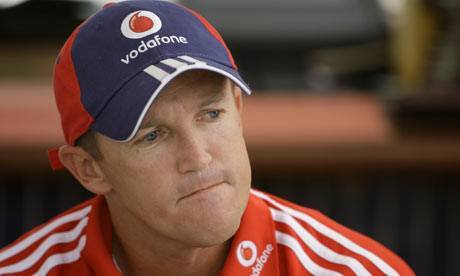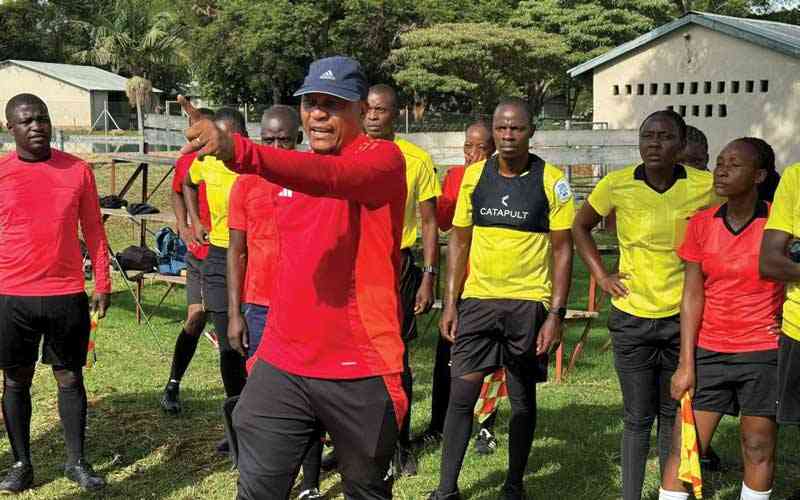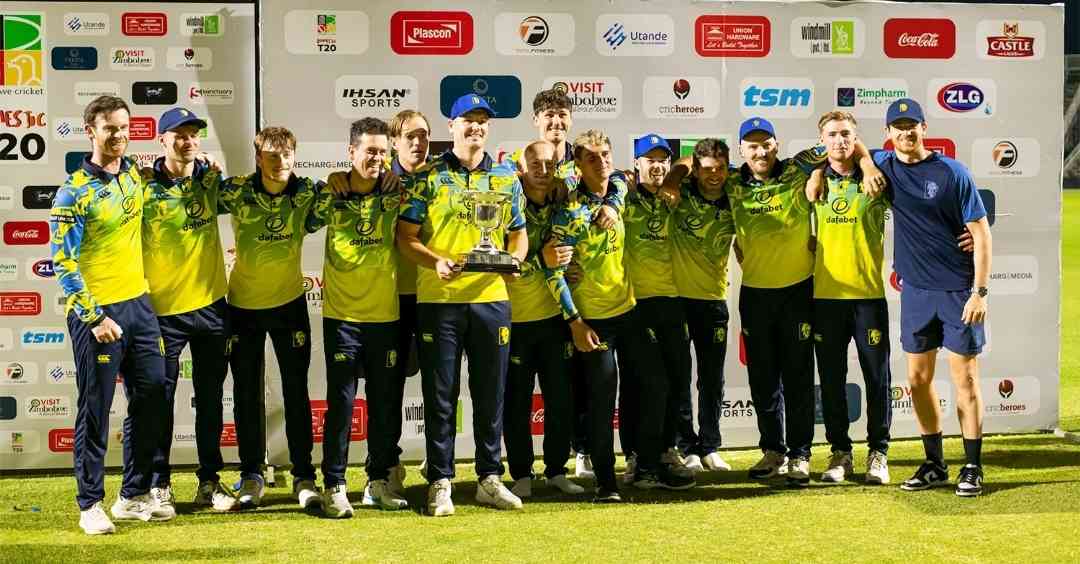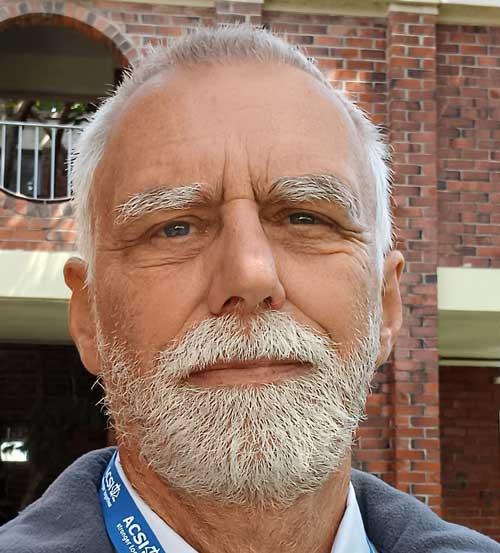
Far from being overawed by the task, Flower, who had no coaching experience prior to becoming an assistant to Moores in 2007, took little time to steady the ship and has been a revelation since taking the job full-time in April 2009.
Under the Zimbabwean’s stewardship, England have won Ashes series at home and abroad, the Twenty20 World Cup and seven of their last nine one-day series — the recent 6-1 reverse in Australia perhaps the only blot on his copybook.
By any measure, it has been an extraordinary performance, but perhaps we should not be surprised by anything from a man who, during the 2003 World Cup in his homeland, won international acclaim for a protest against Robert Mugabe’s tyrannical rule.
Flower and his team-mate Henry Olonga — the first black man to play for Zimbabwe — wore black armbands for a match against Namibia in protest against what they called the “death of democracy” in Zimbabwe.
The act led to both being charged with treason, a crime which carries the death penalty in Zimbabwe. Fearing for their lives, they retired from international cricket and fled the country.
“We spoke out in a world which never normally likes to rock the status quo,” Olonga, who now lives as an exile in England, told BBC Sport.
- Chamisa under fire over US$120K donation
- Mavhunga puts DeMbare into Chibuku quarterfinals
- Pension funds bet on Cabora Bassa oilfields
- Councils defy govt fire tender directive
Keep Reading
“We stepped above the parapet. We were cricketers but we wanted to show the world we have a moral conscience as well.”
In taking a stand against the politics of his country, Flower displayed the single-mindedness, courage and determination that made him such a formidable player and have served him so well as a coach.
According to his younger brother Grant Flower, those traits were evident from their childhood days when endless hours of practice in the back yard led to the pair of them progressing through the ranks of Zimbabwe cricket. “We used to talk non-stop about cricket,” he told BBC Sport. “We played with each other and against each other. We worked on each other’s games and our own games, feeding off each other to improve ourselves as players.
“Andy was captain of his school side and was a natural leader. He has always been a big thinker about the game and I think he did enjoy leading a side and leading from the front.
“The way Andy spoke to players and the way he went about things from an early age, he always commanded a lot of respect.”
Andy Flower’s ability as a batsman and wicketkeeper earned him a call-up to the Zimbabwe national side and he was named captain for the first time in 1995.
It was during Flower’s captaincy that the teenage Olonga earned a call-up to the squad. A tall but inconsistent fast bowler, Olonga remembers having to grow up fast under Flower’s unforgiving regime.
“Andy was a hard task master,” recalled Olonga. “He was a no-nonsense guy, he always demanded the best from his players and didn’t tolerate weak excuses.
“I was 18-years-old and it was a case of ‘welcome to the world of men’. Test cricket was harder than I imagined. I was a little kid and Andy didn’t suffer fools gladly. You drop a catch or miss a run out and you will know about it.”
Flower had two stints as Zimbabwe captain during a decade-long international career in which he established himself as a world-class batsman and wicketkeeper, scoring 12 centuries, and averaging 51,54 in 63 Tests.
After quitting the international arena, Flower dedicated himself to county cricket and Essex, where he played for five seasons between 2002 and 2006, including two with his brother.
Paul Grayson, an Essex all-rounder at the time and now their head coach, recalls the aura of professionalism exuded by a player who for a two-year period from early 2000 was ranked as the finest batsman on the planet.
“We had Ronnie Irani as captain and Darren Gough, who both had very strong opinions in the dressing room but Andy was hugely respected,” said Grayson.
“Personally I don’t think Andy was listened to enough because maybe those two overpowered him a bit too much but whenever he did speak up it was always sensible and you always knew when Andy was speaking everyone was listening.
“Everything about cricket has become a lot more professional in the last 10 years and you could say that Andy was a little bit ahead of his time.
“His attention to detail is very strong and his preparation was spot-on, whether that was to do with fitness or diet, he was the ultimate professional. He has carried that forward towards his coaching style.”
When he wasn’t busy scoring hundreds for the county, Flower was studying for his coaching badges and becoming something of a mentor for aspiring Essex batsmen like Alastair Cook and Ravi Bopara, who would go on to become key members of his England set-up. Former England batsman Mark Ramprakash attended the same coaching course as Flower and was impressed by the Zimbabwean’s modus operandi.
“We would have discussions about various subjects within the group and often Andy would keep quiet and then suddenly come in quite late on with a question or a point of view that nobody had really thought of,” said Ramprakash.
“In cricket, unlike some other sports, you do have time with players one to one, so you can afford to be very objective and very calm and Andy is exactly that.
“Some coaches speak too much, some not enough, and some have favourites. I think Andy would seem to get the balance right with all of that.”
As the tributes suggest, Flower has a very modern approach to coaching, with plenty of emphasis on fitness and mental preparation.
His brother Grant paints a picture of a workaholic, determined to leave no stone unturned in his preparations for matches.
“He has read a lot of books about psychology and listened to a lot of tapes,” he said. “He has spoken to a few psychologists and other coaches who have delved into the world of psychology.
One of the most striking features of Flower’s regime has been the team’s ability to bounce back from defeats. If England bring home the World Cup in April, perhaps even this most steely of characters will allow himself to bask in the glory of what would surely be his greatest achievement of all.
— BBCOnline.











